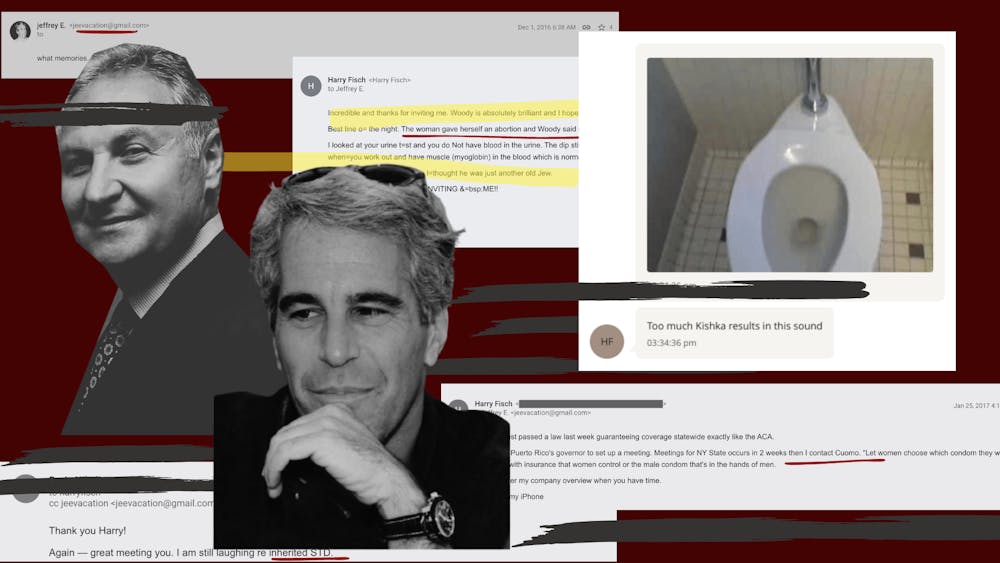Members of the Cornell community — custodians, groundskeepers, cooks, food service workers, greenhouse employees, gardeners, mechanics and others — are on strike. As the administration has acknowledged, the work these employees do is absolutely essential to the basic operation of the University. None of us can work, learn, research or teach in their absence.
Naturally, the strike has placed enormous stress on the institution. Basic work can’t be done.
And so the University leadership has asked us all to “step up” and pitch in, with emails from central administration, many colleges and other units giving guidelines on how all of us — students, faculty, staff, etc. — can do “our part.” To take extra responsibility to keep facilities clean. To volunteer for additional shifts. To serve food to students in dining halls. Retirees have been invited to fill in for former colleagues. The University leadership wants us to think of this as a noble, community effort to ensure that our students are fed, our facilities are clean and that Cornell continues to function despite the absence of its essential workers.
No doubt some of us have an inherent impulse to “step up” and do our part. This is natural, and the desire to help is a good one. We probably all believe that we should contribute when there is a crisis. And we hold in some contempt those who refuse to do so, who treat additional work produced by a crisis as someone else’s responsibility.
A labor strike, however, is one of those vital moments where a deeper logic is revealed. Strikes reveal the moral inadequacy of “community” as a guiding principle, how “stepping up” and “chipping in” can in fact be a cover for immoral actions.
A labor strike is not equivalent to a natural disaster or a crisis outside of our making. A strike reveals a profound conflict within our community, in this case one that is the result of the University’s own policies and choices. These include Cornell’s consistent refusal to recognize or pay for the considerable costs associated with its successes — a cost-of-living crisis in Ithaca and surrounding communities — and its desire to keep in its control as much of the value produced by its workforce as it can.
The workers represented by UAW 2300 have voted, democratically and overwhelmingly, to collectively withhold their labor until this conflict is resolved on terms that allow them to live and thrive.
The capacity to collectively withhold labor is the only real source of power workers have. In this context, “stepping up” or “doing our part” in the way that the University would like takes on a very different meaning. The workers have chosen to withhold their labor. The University would like us to replace it. This is not chipping in – it is choosing a side. When we replace striking labor, whether in their jobs or the work that they would be doing, we attack and undermine our friends and colleagues in their collective decisions and struggle. To “step up” in this context means taking the side of their employer, who wields enormous power over their lives and the lives of many others.
This is what it means to break a strike. This is what it means to scab.
“Community” can be a vague, empty term. We only imbue it with meaning through our actions. The University leadership has shown us its vision of “community.” It has shown this vision of community in its persistent refusal to recognize the value of its workers and the costs it imposes on Ithaca and neighboring communities. It has shown this vision of community in its misleading communications, wrongly implying that members of the Cornell community are outside employees of the UAW. It has shown this vision in spending what must be, after successive campaigns, millions of dollars to strike-breaking and union-busting firms, in order to undermine the democratic decisions of its employees. And it has shown this vision of community in its requests to employees to replace the work of their friends and colleagues.
The University appeals to our better natures, to our commitment to community, to conceal their real ask: to betray these friends and colleagues, at the moment when they are most in need of our support.
The Cornell leadership of the UAW 2300 chapter, by contrast, has shown a richer vision of what community needs and what it can be. They too appeal to our desire to help out, to step up. They have asked for solidarity, rather than to undermine each other. To not replace striking labor or the work that they do. To show up on the picket line. To voice support. To demand that Cornell sign a fair contract. They have asked us to take the side of those members of our community fighting for a better life. They have asked us to stand with them.
And in so doing, they are teaching us that real community can only be forged by a honest appraisal of injustice and unfairness, by a real understanding of the power that a few employers and institutional leaders hold over everyone else, and by a real commitment to challenging it.
David A. Bateman is an Associate Professor in the Department of Government. His research focuses broadly on democratic institutions; he is an expert in the American legislative branch. He can be reached at dab465@cornell.edu.
The Cornell Daily Sun is interested in publishing a broad and diverse set of content from the Cornell and greater Ithaca community. We want to hear what you have to say about this topic or any of our pieces. Here are some guidelines on how to submit. And here’s our email: associate-editor@cornellsun.com.











